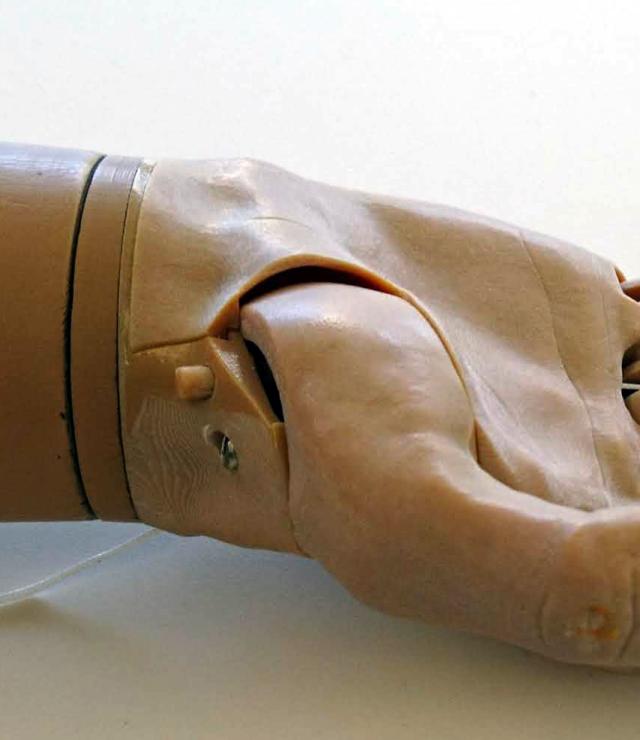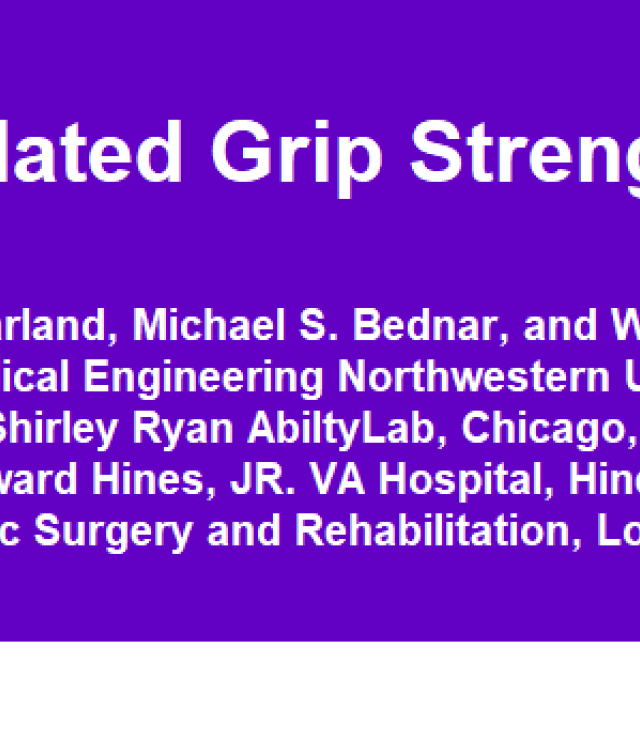Not Finding What You're Looking For?

Feasibility of Mobile Self-Management Intervention for Individuals after Stroke
Refining a mobile technology-based intervention called the interactive Self Management Augmented by Rehabilitation Technologies (iSMART) for people who experience a stroke.
Research Project

Improving Aged Neuromuscular Health and Function
The long-term objective of this proposal is to develop an effective stem cell-mediated therapy to ameliorate age-related deterioration of neuromuscular function.
Research Project

Remote Therapeutic Monitoring
We are conducting a study to determine the helpfulness, feasibility, and effectiveness of using a Remote Therapeutic Monitoring system to help physical therapists assess their patient’s adherence to their prescribed physical activity and exercise plans over the course of six months.
Research Project

iWear Study
Online questionnaire to gain knowledge on previous experience with activity monitors and preferences on incorporating wearable technology into healthcare.
Research Project

COMPLETE: Low-Cost Arm System
Prosthetic arm and hand suitable for individuals in the United States who lack adequate insurance or for people in low-income countries with no prosthetic care.
Research Project

Sensitivity of Simulated Grip Strength to Wrist Posture: Poster Presentation
This poster presentation is in virtual attendance to the American Society of Biomechanics conference in 2020
Research Project

Error-enhanced Learning & Recovery in 2 & 3 Dimensions
a NIH funded grant (James Patton, PI) investigating differences in outcomes using models that describe how a person responds to error during practice, so we can prescribe the best therapeutic training.
Research Project

Parkinson’s Works: Peer Support Group and Education Series
Peer support group for people with Parkinson’s disease who are working or job seeking
Research Project
Accommodations & Return to Work Amidst the COVID-19 Pandemic Webinar
This presentation provides strategies to support the mental and physical health of your workforce as businesses continue their transition into a ‘new normal’.
Research Project
Enabling Work Accommodations as an Essential Element of the Return-to-Work Process Webinar
Rehabilitation Research & Training Center on Employment for People with Physical Disabilities collaborated with Shirley Ryan Abilitylab medical staff to invite national expert Lou Orslene, Director for the Employer and Workplace Policy Team at the Office of Disability Employment Policy, U.S. Department of Labor, to present a webinar entitled Enabling Work Accommodations as an Essential Element of the Return-to-Work Process.
Research Project

Peripheral Nerve Injuries Associated With Prone Positioning of Patients With COVID-19
This research project collaborates with a NU lab to study the acquired injuries that are taking place in hospital care of people with Acute Respiratory Distress Syndrome ARDS.
Research Project

Improve dynamic lateral balance of humans with SCI
This project will test whether robotic balance training paired with transcutaneous spinal stimulation will be effective in improving dynamic balance and locomotor function in humans with SCI.
Research Project